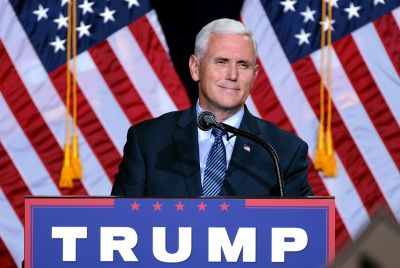India's Opposition Struggles To Battle Modi Juggernaut
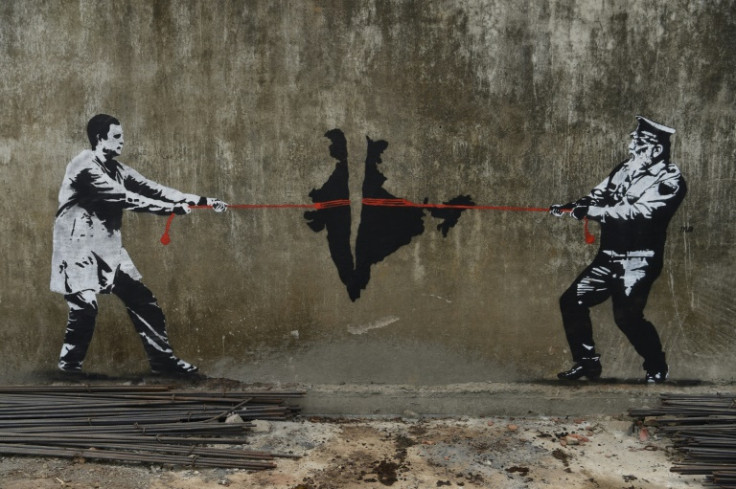
Living a precarious existence on odd jobs, manual labourer Virender Singh says his relentless struggles to make money are inconsequential compared to Prime Minister Narendra Modi's endeavours to make India great.
Modi's popularity remains stratospheric a decade after he first swept to power. He has successfully cast himself as the custodian of both India's rising global stature and the best interests of its majority faith.
More than two dozen opposition parties hoping to unseat his Hindu-nationalist government at elections starting next month are campaigning jointly on a pledge to tackle rising economic distress.
But the pitch has fallen flat with voters like Singh, who lives in a New Delhi slum alongside fellow migrants who journeyed to the capital from small villages to jostle each morning for temporary employment on construction sites.
"There are many people in the country, not everyone will get jobs," the 31-year-old told AFP.
"The poor will remain poor regardless of whoever is in power," he added. "I think things should continue as they are since Modi is doing decent work."
Modi, 73, sits atop a well-oiled campaign juggernaut awash in corporate donations, and a Pew survey last year found nearly 80 percent of Indians viewed him favourably.
In January, he presided over the inauguration of a controversial temple in northern India built on the site of a mosque that was razed by Hindu zealots decades earlier.
The temple's opening was the latest landmark in the ascent of muscular Hindu-first politics in nominally secular India that has left religious minorities fearful of their future in the country.
Hindus rapturously greeted it at street parties around the country, further burnishing Modi's image as the chief advocate for their faith.
"Modi has been able to convince his supporters that the hegemony of Hindus and the putting down of minorities is more important than things like jobs," said Nilanjan Mukhopadhyay, the author of a biography of the prime minister.
Dubbed INDIA - Indian National Developmental Inclusive Alliance - the opposition grouping battling to oust Modi's government meanwhile appears to have conceded this year's election before a single vote has been cast.
Its most prominent figure, Rahul Gandhi, has sought to capture attention by staging two cross-country journeys on foot to hear the concerns of average voters.
Gandhi's close aide Gaurav Gogoi told AFP that the listening tour was successfully emphasising "bread and butter issues" of economic hardship facing much of the country.
But despite being the son, grandson and great-grandson of former Indian prime ministers, Gandhi has already suffered two bruising landslide defeats to Modi.
The 53-year-old has studiously refrained from casting himself as an alternative prime minister this time to avoid frictions with allies, with their own national leadership aspirations.
Gandhi's campaigning has been largely ignored by India's clamorous news channels, which critics believe are overwhelmingly in thrall to Modi's agenda.
Modi's current term has seen him preside over the opening of new high-speed rail services, India's hosting of the G20 summit and a successful uncrewed Moon mission.
The media breathlessly portrayed each event as a symbol of India's rising clout and prosperity, which it now enjoys after decades of poverty.
"Much of the mainstream TV media today works as a megaphone for the governing party," Manisha Pande of Newslaundry, a news website focusing on media criticism, told AFP.
Prolonged public bickering over which party will contest which seat has also badly dented the opposition alliance's efforts to resemble an alternative government.
"People still find Modi more credible," Rahul Verma of the Centre for Policy Research think-tank in New Delhi told AFP.
"It is harder for opposition parties to come together. Even if they come together, each party is pursuing different interests."
Opposition figures also say Modi's ruling Bharatiya Janata Party (BJP) has worked to tilt the election's outcome in its favour.
Several party leaders in the opposition bloc are the subject of criminal investigations they say are politically motivated.
Data released this month showed Modi's party was far and away the single biggest beneficiary of a controversial donation scheme established by his government.
The system had allowed huge amounts of corporate funding to be anonymously channelled towards political parties.
Lawmaker John Brittas told AFP that Modi's rivals were at a structural disadvantage.
"The BJP has ensured that there's no level playing field," he said.
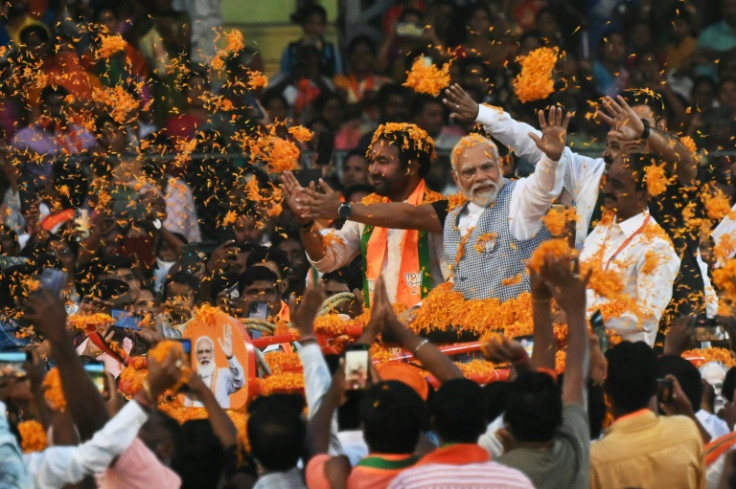
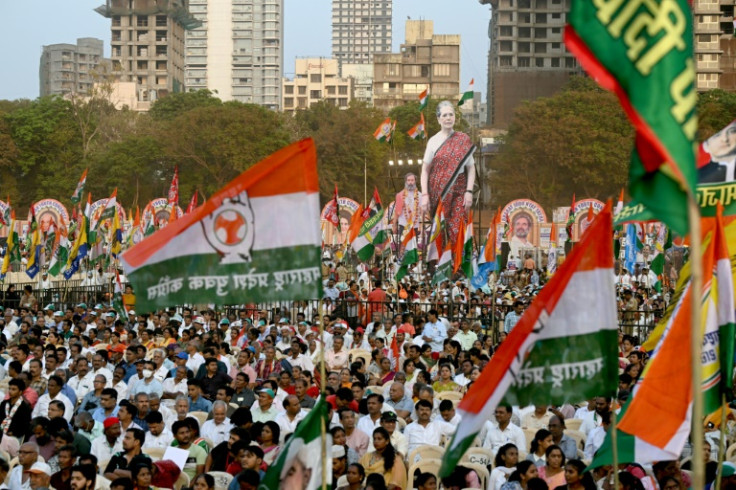
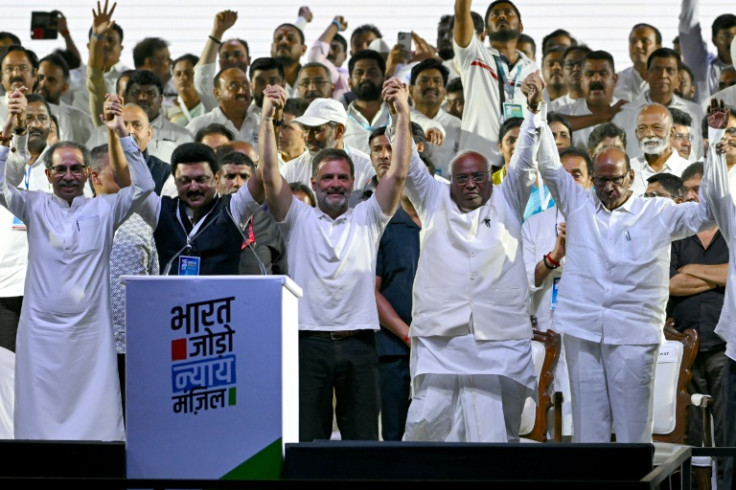
© Copyright AFP 2024. All rights reserved.



















